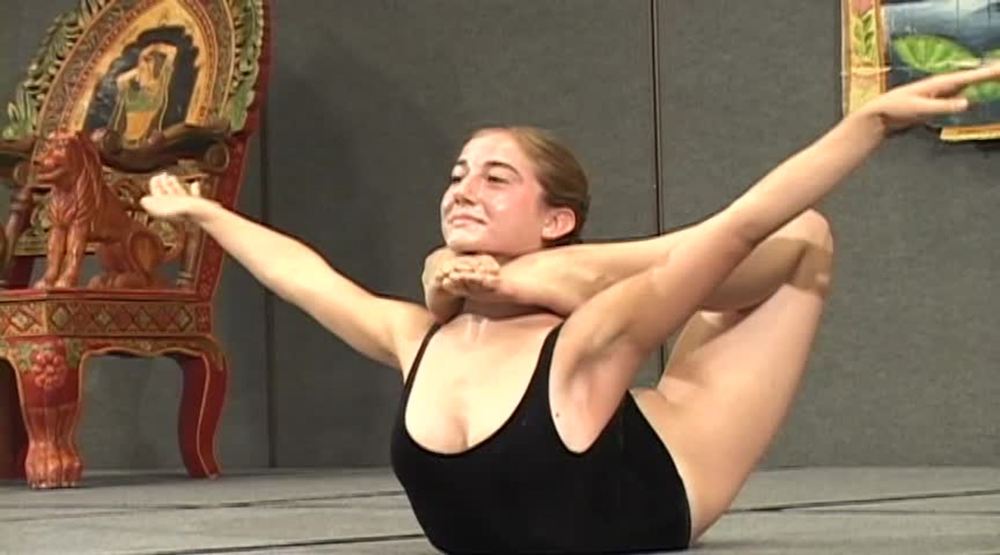Have you ever caught yourself gritting your teeth in angst as someone in yoga class effortlessly slides into the splits, or gracefully lifts themselves into a handstand? Or have you ever noticed a sense of smugness creep in as you take an Insta-worthy Bakasana whilst the person next to you performs a spectacular nose dive into their mat? You're probably not alone...
Recently I was asked by one of my students. "How can I avoid feeling competitive in class?". I thought it was a brilliant question and so I wanted to share some thoughts about it below...
I'm sure many of us have heard it said that one of the great things about yoga is that there's no competition (despite those curious yoga competitions that are starting to crop up - have you read Hell Bent?). But really, how true is this, or can this ever be, when we live in a culture that's built on the foundations of striving to be the best, the winner, number 1? Competition is an inherent part of our culture and environment, of our genetic make up even, and so how realistic is it to expect someone to relinquish this impulse the moment they step foot into a yoga studio? In fact it could be the case that the oft repeated assertion that there is no competition in yoga could be making us feel even worse about ourselves by setting up an unrealistic set of expectations (and making us feel that we're 'bad' yogis for feeling competitive). Indeed, it's not competitiveness (an abstract concept) in itself that's bad, but the way we reflect it back at ourselves (for example, to give ourselves a hard time) and the way it can make us feel (shitty or superior). Competitiveness is a fundamental human characteristic and, for me at least, yoga practice should be about becoming a more embodied human being (Patanjali would perhaps beg to differ).
I'm sure that if most of us were honest with ourselves, we'll admit to being competitive in yoga class on the odd occasion. The great news is that this doesn't make us bad yogis (at least not in my book). For me, one of the most powerful benefits of yoga practice is that it helps us to uncover our conditioned patterns of behaviour and thought (often referred to as samskaras in yogic parlance).
These conditioned patterns of behaviour will, more often than not, manifest in the way we approach our yoga practice. If we're used to striving, straining and struggling to be the best, then it's likely we'll encounter similar behaviours in our practice. If we tend to be lethargic, or full of energy, or a risk taker, or if we like to give ourselves a hard time...each of these patterns will probably manifest in some way.
Often we remain oblivious to these patterns even though they can exert a strongly negative influence on our lives. For example, striving for success at the expense of others can be a path to alienation, and constantly giving ourselves a hard time can be truly debilitating. But when we practice asana or meditation, we're presented with a really valuable opportunity to recognise and explore our patterns of behaviour and thought. This is a wonderful gift of the practice because when we become consciously aware of something, the power that it exerts over us tends to weaken. To paraphrase my meditation teacher, Martin Aylward, our practice then becomes a 'practice of creating freedom by becoming aware of the ways in which we're trapped'. In this way, whatever arises in our practice can be used as a doorway for exploration and liberation.
So the next time you catch yourself feeling competitive in your yoga practice, rather than giving yourself a hard time, perhaps use it as an opportunity for enquiry. Recognise that this is a very natural, very human behaviour and then shift your awareness and attention away from your thoughts and the story they're painting and into your body, noticing what sensations are present at that moment and meeting them with a friendly curiosity. Notice where theses sensations can be felt and how they shift and change...holding them in awareness without judging or labelling them.
It's amazing what a liberating and powerful experience this simple technique can be. It helps to free us from the tyranny of negative internal dialogue and allows us to show some kindness to ourselves (and others) by recognising our very human behaviours and patterns for what they are. And it helps us to become more accepting of ourselves and our practice - complete and whole just as we are. In this way, we can use our practice to enrich and nourish us, allowing us to become more fully embodied and present to our everyday experiences - rather than as another stick to beat ourselves with.

